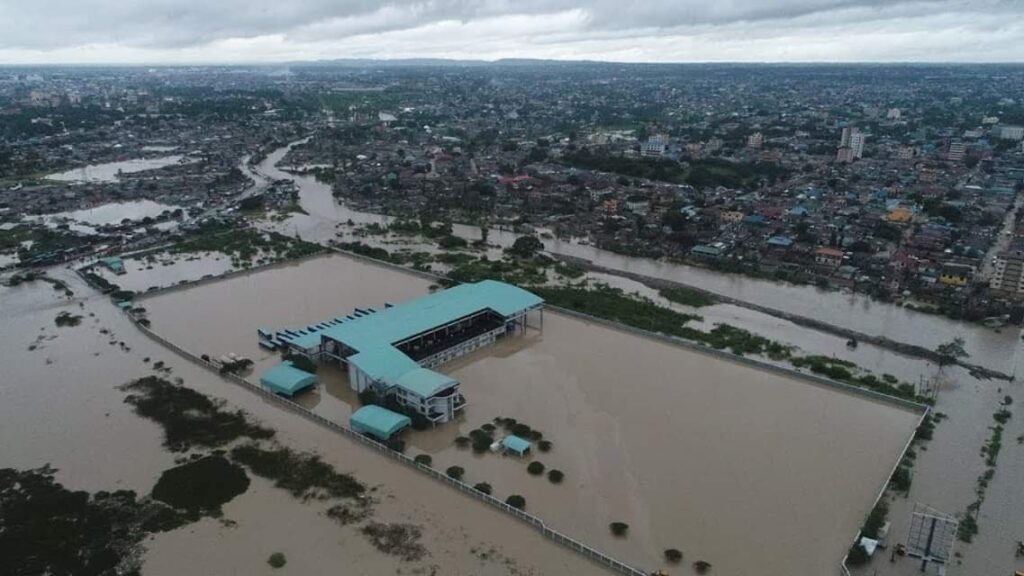Dar es Salaam. Climate change expert from the University of Dar es Salaam, Prof Pius Yanda, has advised the government to expand roadside drains to accommodate the increased volume of water flowing during heavy rains to prevent flooding that affects residents.
He offered this advice as the country, particularly Dar es Salaam, has been experiencing a difficult transportation period this week due to the ongoing heavy rains causing flooding, especially on roads, despite the government’s extensive efforts to construct drains to alleviate the problem.
Professor Yanda explained that when these drains were being built, the rainfall intensity was not as high, hence the need to expand them to handle the current volume of water.
“Due to climate change, the rains are not frequent but intense and fall for a short period, causing the drains to overflow, leading to the floods we are witnessing now,” he said.
He further advised the government, through urban planning units in local councils, to start considering constructing buildings suitable for the local geography to provide adequate space for natural watercourses to flow and avoid flooding.
He also cited the problem of people building in natural watercourses, causing rainwater to lack an outlet and end up flooding roads and homes.
The environmental expert also mentioned the mismanagement of solid waste, which leads to it littering the streets and ending up in drains, blocking them and preventing water from flowing to appropriate areas. He advised the municipality to properly manage this issue.
The Rural and Urban Roads Agency (TARURA) Dar es Salaam Regional Manager, Geofrey Mkinga, said that resolving the problem requires a concerted effort from relevant institutions such as the National Environment Management Council (NEMC) and all municipalities.
He said that on their part, they are mitigating the damage by cleaning and unclogging existing roadside drains, although these drains are being overwhelmed as water lacks outlets after its natural course is blocked by settlements.

He also advised municipalities to supervise the land allocation exercise to ensure that residents do not build in natural watercourses, as this is one of the causes of flooding.
The Head of the Kinondoni Municipal Government Communication Unit, Aquilinus Shinduki, said that the municipality’s main role is to ensure that waste is not dumped in drains, so they are continuing to educate the community.
“For example, we in Kinondoni Municipality have set aside funds to unclog drains in our area, and it is an ongoing issue, so we believe that as the days go by, we will significantly reduce this inconvenience,” he said.
He also said that the Urban Planning Department is continuing to monitor and prevent unauthorized construction, especially in and around waterways, and sensitizing residents who have built in valleys and on riverbanks to relocate to allow water to flow freely and avoid floods that bring misery to the community.
TMA Information
Meanwhile, the Tanzania Meteorological Agency (TMA) has issued a warning of continued heavy rains in some regions of the country, including Dar es Salaam, Tanga, Pwani, and the islands of Unguja and Pemba, until tomorrow.
It has also issued a warning of strong winds reaching 40 kilometers per hour and large waves reaching two meters in some parts of the Indian Ocean Coastal Strip.
It said that due to this situation, there is a possibility of impacts including deaths, infrastructure damage, houses flooding and people being displaced, and advised people to take precautions.
Despite the various efforts being made by the government to address the problem of flooding, especially on roads, the problem has continued to worsen as the rainy season progresses.
The reality is evident in the ongoing rains that have caused flooding on some roads in Dar es Salaam, leading to closures, including Jangwani Road, causing inconvenience to residents commuting in the city center.
The rains have also affected over 8,000 students in Rufiji and Kibiti districts in Pwani Region after floods damaged infrastructure, forcing the group to miss school.


